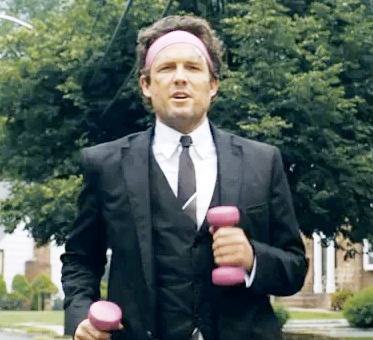How TV ads affect your decisions about car insurance
Emmet Pierce
While auto insurance pitchmen like Allstate’s Mayhem, GEICO’s Gecko and Farmers’ professor continue to slug it out with competing TV commercials, consumers are no more likely to seriously consider changing companies now than they were a couple of years ago.
Just 20 percent of consumers switched car insurance companies in the past year, a drop of only 2 percentage points from 2010, according to a report from digital business analytics firm comScore Inc. Fifty-two percent of consumers shopped for insurance in the past year, up a single point from 2011. Although comScore’s 2012 Online Auto Insurance Shopping Report describes the market as stagnant, that isn’t persuading insurers to halt their TV blitz.
The theory behind the ongoing bombardment of car insurance commercials is that insurers can gain an edge with repetition and increased name familiarity. Auto insurance companies rely on humorous TV mascots to pitch their products. Farmers hopes its wise-guy professor will make a bigger impression on you than Progressive’s perky saleswoman Flo.
 When people are ready to change auto insurance companies, the insurers “are looking to be top of mind,” says Jonathan Symonds, executive vice president of marketing at Ace Metrix, which measures advertising effectiveness.
When people are ready to change auto insurance companies, the insurers “are looking to be top of mind,” says Jonathan Symonds, executive vice president of marketing at Ace Metrix, which measures advertising effectiveness.
“It is very difficult to know when that event will occur,” Symonds says. “That is why they are advertising so aggressively. If you are in the market for insurance, they want to be in your consideration set. Ideally, they want to be the last ad you saw.”
Getting lost in the crowd
With so many ads vying for attention, insurers are under pressure to make sure their products don’t get lost in the crowd, says Bruce Clark, associate professor of marketing at Northeastern University in Boston. If they want to stay competitive, auto insurers must continue to advertise, he says.
“You need to have enough spending to get above the clutter,” Clark says. “You see hundreds of ads a day. How many times do I have to run an ad before you notice it? The first time you may not notice it at all.”
During the four-week period that ended Oct. 1, 2012, the top players in auto insurance advertising on TV spent about $64 million, which Symonds is a typical amount. As long as their competitors are spending heavily on advertising, auto insurance companies are reluctant to trim their own marketing budgets.
According to comScore, understanding which segments of the market are least loyal to insurance brands and targeting them with advertising is critical for car insurance companies. Younger drivers are the most willing to hop to a different brand. The comScore report says 68 percent of 18- to 24-year-olds and 66 percent of 25- to 34-year-olds were seriously considering a switch to another car insurance company.
The report says researchers analyzed the online behavior of 1 million consumers. They also weighed the results of a survey of more than 4,000 online consumers that was conducted in February and March 2012. The report, in part, drew the following conclusions:
- The segment of consumers influenced to shop by TV advertising has grown from 12 percent in 2010 to 15 percent in 2011 and 18 percent in 2012.
- 69 percent of those influenced to shop by a TV commercial are under age 34.
- 81 percent of shoppers get three insurance quotes or fewer. That means insurers have to stay at the top of your “consideration set” through frequent advertising to win your business.
- The most common reason consumers shop for auto insurance is because they’re looking for cheaper coverage. Fifty-nine percent of those questioned gave that reason, the same percentage as in 2010.
How we make insurance decisions
Barry Bosworth is an economist at the Brookings Institution, a think tank that does economic research. Bosworth says that although TV ads are effective at boosting product sales, they typically do little to educate consumers or help them make wise business decisions. It’s all about drawing a crowd.
“A lot of people would like to believe that advertising transmits information to people,” Bosworth says. “The answer is ‘no,’ (but) advertising can alter your decisions.”
As long as insurers make a profit, the current ad blitz will continue, Bosworth says. They consider it money well spent.
“They wouldn’t do it if it didn’t work,” he says. “It is a simple straightforward calculation. If I spend a dollar, do I make money or not?”
While TV commercial frequency is important, Chicago psychologist Elizabeth Lombardo insists that making consumers aware of a product is only part of the equation. The commercials you remember and respond to best are the ones that send a compelling message or reach you on a deeper, emotional level.
“It has a lot to do with the type of emotions they stir in us,” she says. “It could be humor or something (else) that pulls at our hearts.”
